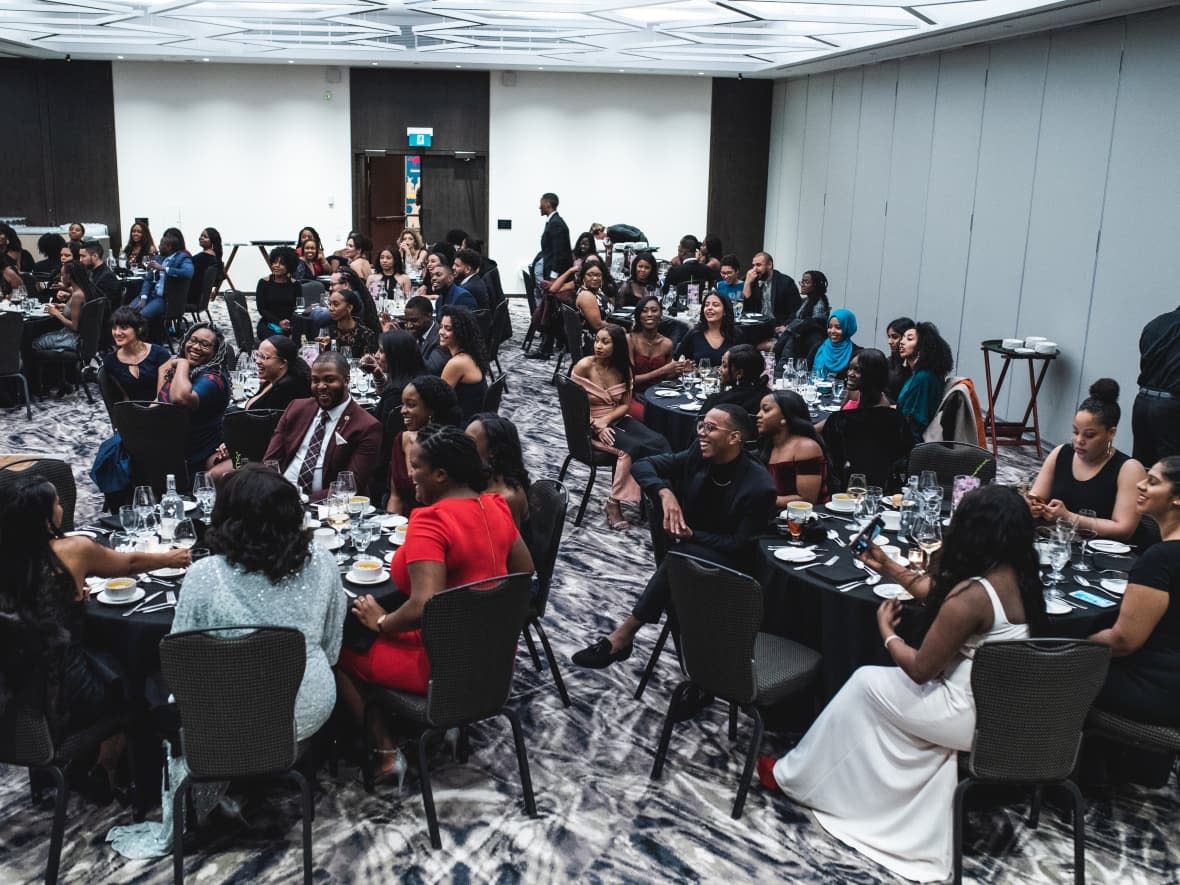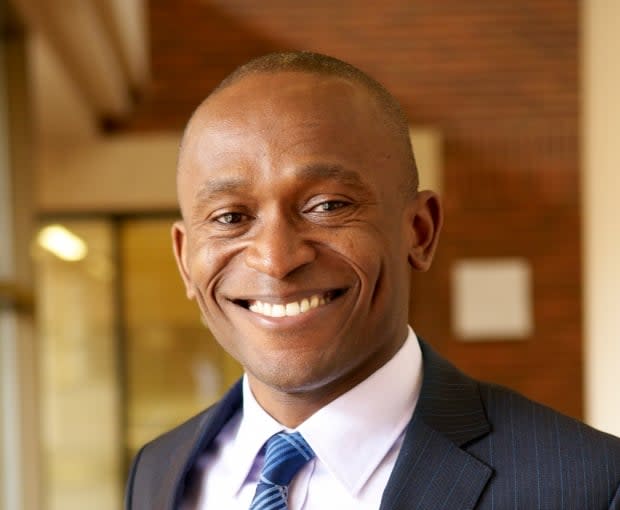U of A has one of the lowest percentages of Black law school students in the country, report shows

Peace Penzi expected she would be among a minority of Black students at the University of Alberta's law school, but she was surprised to learn in 2019 that she was the only one.
"I remember calling my mom the first week of school, saying, 'I don't know why I'm here,'" recalled Penzi, who is now an articling student in Toronto.
Since then, the percentage of Black students at the Edmonton law school has remained small.
According to a new report from the Black Law Students' Association of Canada, just four of the 547 students in the U of A's entry-level law degree program identify as Black.
Black people comprise 4.26 per cent of Alberta's population and 5.76 per cent of Edmonton's, according to Statistics Canada.
"I do wish that number was higher," said second-year law student Rebecca Alexander, who is the vice president of communications of the U of A's BLSA chapter.
Penzi said she formed the chapter so other Black students would feel less isolated.
The underrepresentation at the U of A's law school reflects a national trend.
According to the report, Black students are underrepresented at a majority of Canada's 24 law schools.
The report's authors started gathering enrolment data and survey results from law faculties last fall and analyzed the numbers with local BLSA chapter members.
Some schools didn't respond or wouldn't hand over the information, but most provided figures for the current school year.
The report shows Toronto Metropolitan University's law school has the highest percentage of Black students enrolled in an entry-level program — nearly 13 per cent — while the U of A is among schools with the lowest percentages.
Mirabelle Harris-Eze is one of the report's authors, the president of BLSA Canada, and a law student at the University of Calgary.
She said law schools are gatekeepers influencing who ultimately becomes lawyers, judges and politicians.
"When those people do not reflect the diversity of Canada, our justice system, our legal system, and what our sense of justice and fairness and equity is in our country, [it's] going to be skewed and we're going to have blind spots," she said.
The report authors have made eight recommendations for law schools, including creating Black-conscious admissions processes, offering targeted scholarships and hiring more Black law professors.
Representation at U of A
Ubaka Ogbogu, who has been a professor at U of A's law school since 2011, told CBC News he could not recall a year when there were more than five Black students.
He said the "dismal" statistics reflect the law school's failure to face the issue, even as other law schools have done so.
He said some might assume Black students want to attend U of A's law school but face barriers to getting in. That might be true, but it's not the whole picture, he said.
"It could be that Black people actually are aware of our law school and don't want to come," he said.

Ogbogu said the school should acknowledge the issue publicly, have an independent audit done and present itself as an institution that welcomes diversity and inclusion.
Dean Barbara Billingsley said in an interview that the law school is focused on improving diversity of the student body.
She said the school has increased targeted recruitment efforts; hired two Black professors; created five new scholarships, including one named after Violet King Henry; started a review of its admissions process; and created a free LSAT prep course.
"Culture is a very nebulous thing and a difficult thing to change, but I hope that these initiatives, taken together, are sending a message that we want to see Black law students at our faculty," she said.
Alexander said the school isn't perfect, but it's trying.
She said the local BLSA chapter hosted a well-attended information session for Black undergraduates last month and the school has offered to organize it in the future.
Holistic admissions
One of the report's recommendations is creating admissions categories for Black students, which would "provide an alternative or supplement for applicants who do not meet specific grading percentages, LSAT scores and who experience certain cultural, socioeconomic, medical or physical barriers."
Harris-Eze said Black students are completely capable of earning great grades and test scores, but those measures reveal students' privileges, not necessarily their intelligence and ability to excel in law school.
Students who can afford prep courses and test retakes, she said, could have higher scores than low-income candidates with children.
"What holistic admissions processes do is they acknowledge that there are societal imbalances and systemic racism that is making certain situations more difficult for other students," she said.
After the murder of George Floyd in 2020, the University of Calgary's law school created a Black students admissions process, following a call to action from the local BLSA chapter.
The process allows candidates who identify as Black to submit an optional 1,000-word essay.
Catherine Valestuk, assistant dean of admissions and recruitment at the U of C, said the number of Black applicants surged after the change.
The percentage of Black students enrolled at the U of C's law school has increased to nearly eight per cent.
Gideon Christian, an assistant professor at the U of C's law school, recommends other schools do the same.
"The fact that such a program exists helps the students to understand that this law school actually cares about individuals from our demographic," he said.
For more stories about the experiences of Black Canadians — from anti-Black racism to success stories within the Black community — check out Being Black in Canada, a CBC project Black Canadians can be proud of. You can read more stories here.



